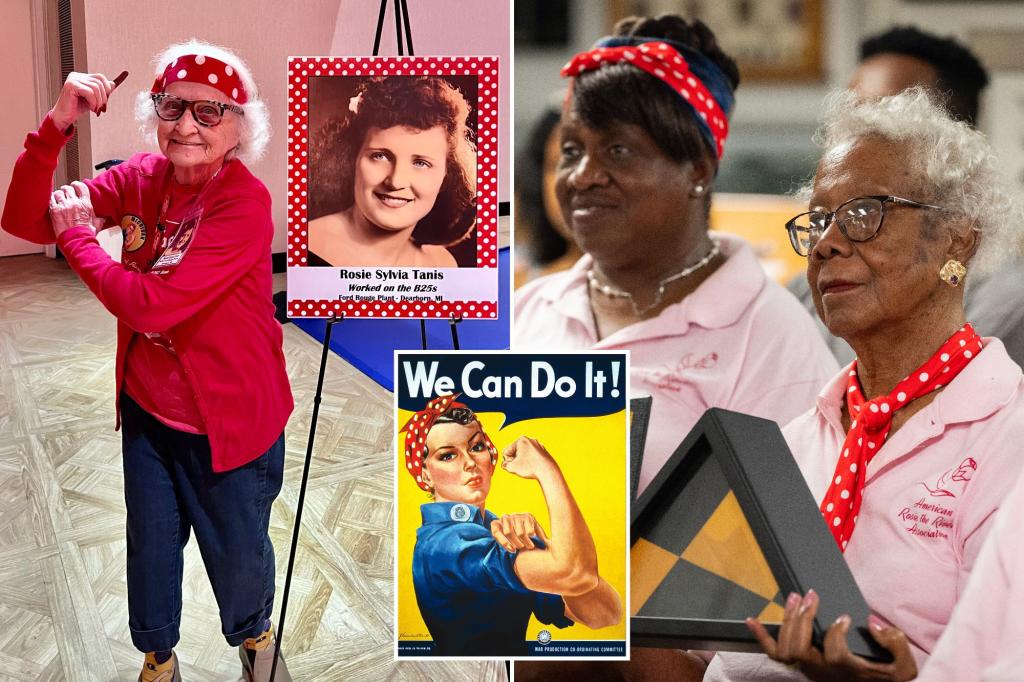During World War II, Lila Tomek wanted to fight alongside her brothers but was instead one of the first 50 women to work at the Glenn L. Martin Bomber Plant, earning 60 cents an hour. She worked long hours seven days a week riveting and splicing cables for B-26 Marauder and B-29 Superfortress planes. Tomek, now 101, was recently recognized in Washington, DC, along with other real-life Rosies for their service to the nation. She was surprised by the acknowledgment as they did not receive any special thanks when the war ended.
At the medal ceremony, twenty-seven women were awarded congressional gold medals on behalf of the estimated 20 million females who worked to support the country during the war. The Rosies ranged in age from their late 80s to 106. Tomek called the award ceremony a highlight in her life and reminisced about a visit from President Franklin D. Roosevelt to the plant where she worked. Sylvia Tanis was another Rosie who was thanked by Henry Ford himself for her work at the Ford Motor Company’s River Rouge factory, where she repaired B-25 bomber plane fins.
Susan King, now 99, helped build fighter jet wings after high school as a way to earn money for college. The women who worked in the factories during the war found financial independence and confidence in their abilities. For King, it opened the door to a career in education after the war. Dolores Leonard, 88, was the youngest of the group, and as a child, she collected milkweed pods for the war effort. She donated her earnings back to the war effort and continues to be proud of her patriotism and love for the United States.
The Rosies made the most of their time in Washington, visiting various landmarks and museums. They were grateful for the appreciation shown to them during the medal ceremony and were pleased to have their efforts recognized. For Leonard’s daughter, Lisa Simpson, the experience was eye-opening, as it highlighted the lack of patriotism and pride among the younger generation today. She feels that the American spirit and unity shown by the Rosies during World War II are lacking in modern times. The visit to Washington served as a reminder of the importance of recognizing and valuing the sacrifices of those who came before us.


